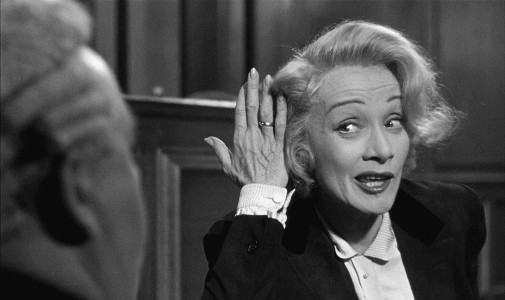
1957 was a fascinating year when it comes to the Oscars' acting categories. Thanks to the stultifying Sayonara, Miyoshi Umeki became the only Asian actress to ever win an Academy Award, while silent era Asian-American sex symbol, Sessue Hayakawa, received his first and only Oscar nomination for The Bridge on the River Kwai. In that same year, the Best Actress race saw Elizabeth Tayor receive her first nomination, and Deborah Kerr coming the closest she ever was to win an Oscar, for Heaven Knows Mr. Alison. She lost, but was, at least, nominated, unlike the cast of Best Picture nominee 12 Angry Men. It seems insane to think so, but none of that picture's astounding performances got any love from AMPAS, not even for Henry Fonda's star turn.
That being said, no snub hurt more than that of an actress so confident she had earned Oscar gold, that there was a prerecorded introduction to her Vegas show that mentioned a 1957 nomination. We're talking about Marlene Dietrich in Billy Wilder's Witness for the Prosecution…
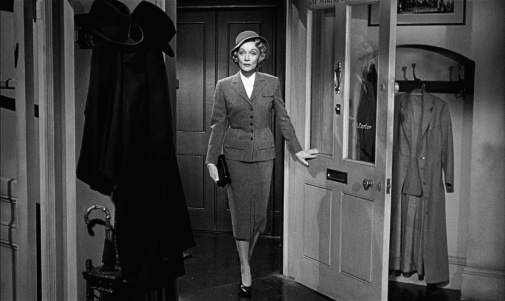
Adapted from a play by Agatha Christie, Witness for the Prosecution is a twisty procedural that focuses on the murder trial of the handsome Leonard Vole. After befriending a rich old widow by the name of Emily French, Mr. Vole became the prime suspect on her murder, having been previously made the biggest beneficiary of her last will. When we first encounter him, he's making his case to Sir Wilfrid Robarts, a respected barrister of great fame and ill health, who's eager to jump back into action after a stint at the hospital. What ensues is a game of deception in and out of court that is only made more perverse and complicated by the presence of Leonard Vole's German wife, Christine.
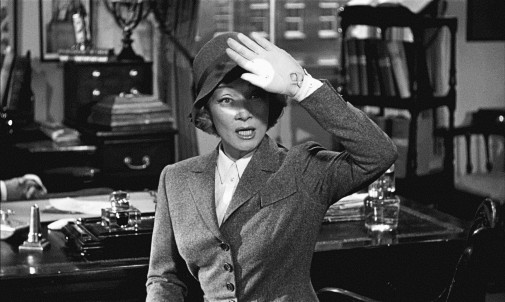
At first, Christine seems to be eager to help her husband, despite the aura of icy mystery that she exudes. Nobody onscreen really trusts her, not even after Leonard tells of their first encounter, a romantic meet-cute in bombed-out Germany that's equal parts romantic comedy and wartime film noir. The suspicions of Sir Wilfrid are only corroborated when Christine appears as a witness, not for the defense, but for the prosecution, contradicting every statement she had first made to her husband's attorney. While one doesn't wish to spoil the 63-year-old mystery, it's very difficult to discuss Dietrich's performance and character without unraveling most of the flick's surprises.
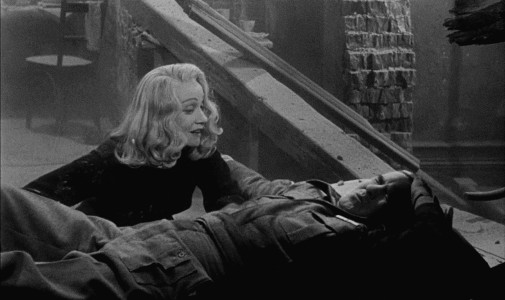
When everything seems lost, Sir Wilfrid receives a promising call from an unknown woman who says she has incriminatory information on Christine. Rejecting the advice of his doctors and nurses, the barrister goes to meet this woman, finding a sullen, rude working-class caricature whose rage against the German seductress makes the screen vibrate in fright. Whatever her reasons may be, the woman's vengeful ploy ends with Sir Wilfrid's acquisition of letters that disprove Christine's testimony for the prosecution and effectively win Vole his freedom. However, before the picture ends, there's a plot twist. The unknown woman was no other than a disguised Christine, who manipulated justice and public perception to save her murderous paramour.
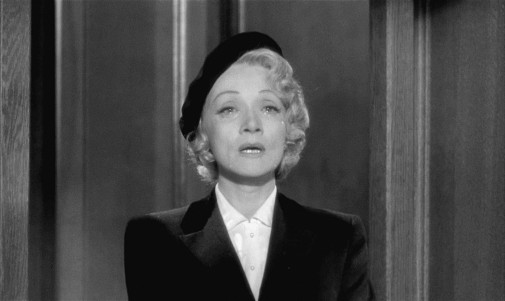
In other words, the role of Christine Vole is performance inside another performance, inside a performance, a Matryoshka of lies and deceit. Only at the end does Dietrich get to show genuine emotion for, until then, she must play a Machiavellian genius pulling the strings, both towards the characters in the story and the audience watching the film. We mustn't trust Christine during any of the early scenes, and, in that regard, Dietrich excels as no other actress could. Leaning on her glamourous, but aloof, screen persona, she conjures a vision of untrustworthiness made flesh, an archetypal femme fatale that's as beautiful as she is poisonous.
It's easy to underappreciate Dietrich's craft since she so often played similar roles and hardly ever challenged the public and the studio's idea of herself. Watching her give life to Christine feels a lot like seeing a consummate professional going through the motions, a well-oiled machine whose precision doesn't surprise. Still, there's intelligence in the actress's choices, like the way she holds her body in rigid poses when on trial. Dietrich calls attention to the performative nature of Christine by contrasting such rigidity, as well as the staccato intensity of her anger, with the body language she exhibits during the amorous flashback and the finale's plot twist.
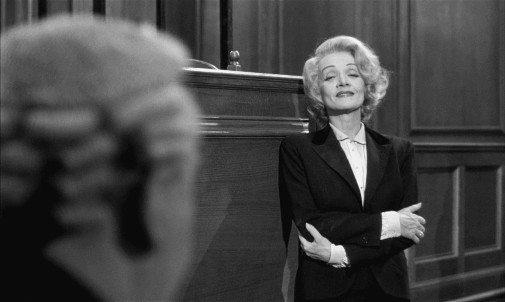
When meeting Leonard in Germany or laughing at Sir Wilfrid's incredulity, Christine shows her true colors and Dietrich's trades in the rigid posture for sensuous confidence that magnetizes the screen with its relaxed power. But even then, there's dishonesty to Dietrich's bravado, sly showmanship to the way she grabs men's attention. That disappears for good when Christine herself is betrayed, her mask of assuredness slipping away and leaving behind the caustic pain of a heartbroken woman. For a second, the actress allows us to see the real person behind these layers of play-acting, but neither she nor her director permits the audience to gawk at Christine's wretched vulnerability. For her final moments on-screen, she faces away from the camera, snubbing it.
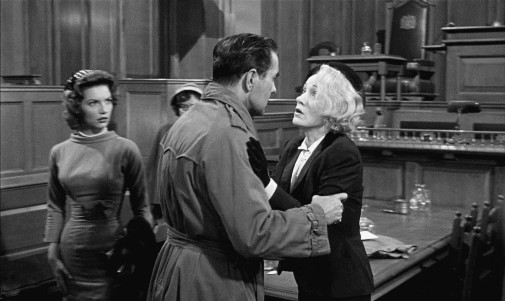
All that, and Dietrich has the scene as the unknown woman, a storm of manic ticks and showy cosmetics that fooled many a spectator back in 1957. To be honest, even when I first watched the movie many years ago, I didn't realize Dietrich was the same woman who gives Wilfrid the incriminating evidence. It's no seamless chameleonic transformation, but a crass explosion of big acting that is so at odds with Dietrich's trademark style that it feels like a different actress altogether. Because of that feat, Dietrich assumed an Oscar nomination was guaranteed. In the end, though, her short screen-time and reputation as a great star rather than a good actress cost Dietrich the Academy's recognition.
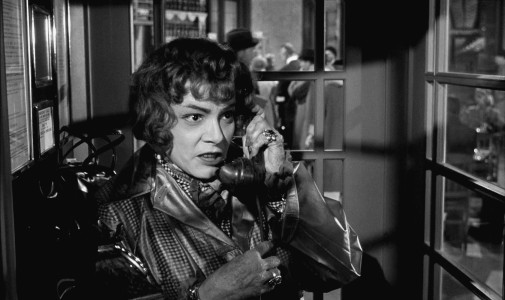
Witness for the Prosecution is available to stream on Amazon Prime Video. You can also rent this classic from Apple iTunes, Google Play, Youtube, and others.